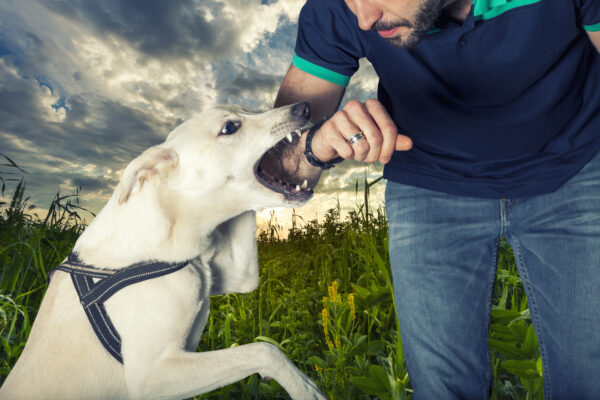In recent years, San Antonio, Texas has witnessed a concerning rise in dog bite accidents. These incidents not only pose a significant threat to public safety but also raise important questions about responsible pet ownership and the legal implications surrounding such cases. Rush & Gransee, L.C., a prominent law firm in San Antonio, recognizes the urgency of addressing this issue and seeks to shed light on the underlying causes of dog bite accidents and potential solutions to mitigate them.
The Alarming Increase
The increase in dog bite accidents is a cause for concern. San Antonio, known for its friendly community and vibrant culture, has seen a steady uptick in incidents involving dog bites. A combination of factors has contributed to this rise, including the city’s growing population, changes in demographics, and increased pet ownership. These incidents have not only resulted in physical injuries but have also left emotional scars on victims, impacting their overall quality of life.
Causes of Dog Bite Accidents
Several factors contribute to the rising trend of dog bite accidents in San Antonio:
- Lack of Responsible Ownership: Many incidents stem from irresponsible pet ownership, including failure to properly train, socialize, and restrain dogs. Owners must recognize their responsibilities in ensuring their pets do not pose a threat to others.
- Inadequate Supervision: Dogs, especially when not properly supervised, can react unpredictably to various stimuli. Lack of supervision in public spaces can lead to unfortunate encounters.
- Unfamiliar Environments: Dogs might become stressed or anxious when placed in unfamiliar environments, leading to defensive or aggressive behavior. This can occur in crowded parks, public events, or even while on walks.
- Lack of Awareness: Some individuals are unaware of the signs of aggression in dogs or how to appropriately interact with them. Educating the public on canine behavior can help prevent misunderstandings that lead to accidents.
- Breed-Specific Misconceptions: Certain dog breeds are unfairly stigmatized due to misconceptions about their nature. Responsible ownership practices should apply to all breeds, regardless of their reputation.
Legal Implications
Dog bite accidents have significant legal implications. In San Antonio, Texas, the law holds dog owners liable for injuries caused by their pets. The “one bite rule” does not apply in Texas, meaning an owner can be held responsible even if their dog has not previously displayed aggressive behavior. Rush & Gransee, L.C. specializes in personal injury law, providing victims with the expertise they need to seek compensation for medical bills, pain and suffering, and other damages resulting from dog bite accidents.
Solutions to Mitigate Dog Bite Accidents
Addressing the rise in dog bite accidents requires a multi-faceted approach involving both responsible pet ownership practices and community-wide efforts:
- Education: Public awareness campaigns and educational initiatives are essential to teach individuals about dog behavior, how to approach dogs safely, and what to do if confronted by an aggressive dog.
- Training and Socialization: Owners should prioritize proper training and socialization for their dogs from an early age. Well-trained and well-socialized dogs are less likely to exhibit aggressive behaviors.
- Leash Laws: Reinforcing and strictly adhering to leash laws can prevent unleashed dogs from approaching strangers or other animals, reducing the likelihood of conflicts.
- Community Involvement: Local communities can establish pet-friendly spaces and organize events that promote responsible pet ownership and safe interactions between dogs and humans.
- Legal Support: Individuals who fall victim to dog bite accidents should be aware of their legal rights. Seeking legal counsel from firms like Rush & Gransee, L.C. can help victims navigate the legal process and pursue rightful compensation.
Addressing the Emotional Toll
While the physical injuries resulting from dog bite accidents can be severe, the emotional toll on victims should not be underestimated. Traumatic experiences such as these can lead to anxiety, fear, and even post-traumatic stress disorder (PTSD) in some cases. Children, in particular, are vulnerable to long-lasting emotional scars from dog bite incidents. Therefore, alongside the practical measures to prevent dog bite accidents, it’s important to address the emotional needs of victims.
Supporting Dog Owners
Responsible dog ownership is a cornerstone of preventing dog bite accidents. To support dog owners in this endeavor, San Antonio can implement various initiatives:
- Training Workshops: Organizing regular training workshops where dog owners can learn effective training techniques, proper handling, and responsible pet ownership practices can significantly reduce the likelihood of accidents.
- Online Resources: Developing online resources, including videos and articles, can provide accessible information on dog behavior, body language, and safe interactions.
- Community Engagement: Local communities can encourage responsible dog ownership by establishing community-led programs that provide guidance to new and existing pet owners.
The surge in dog bite accidents in San Antonio is a pressing concern that demands immediate attention. It is crucial for individuals to be informed about responsible pet ownership and for communities to work together to create safer environments for everyone. Rush & Gransee, L.C. is committed to raising awareness about this issue and providing legal support to those affected. If you or someone you know has been a victim of a dog bite accident, contact us today to ensure your rights are protected and to explore your options for seeking compensation.
The rise of dog bite accidents in San Antonio is a multifaceted challenge that requires collective efforts to address. By promoting responsible pet ownership, educating the public, and seeking legal recourse when necessary, we can create a safer and more harmonious community for both humans and their beloved canine companions.